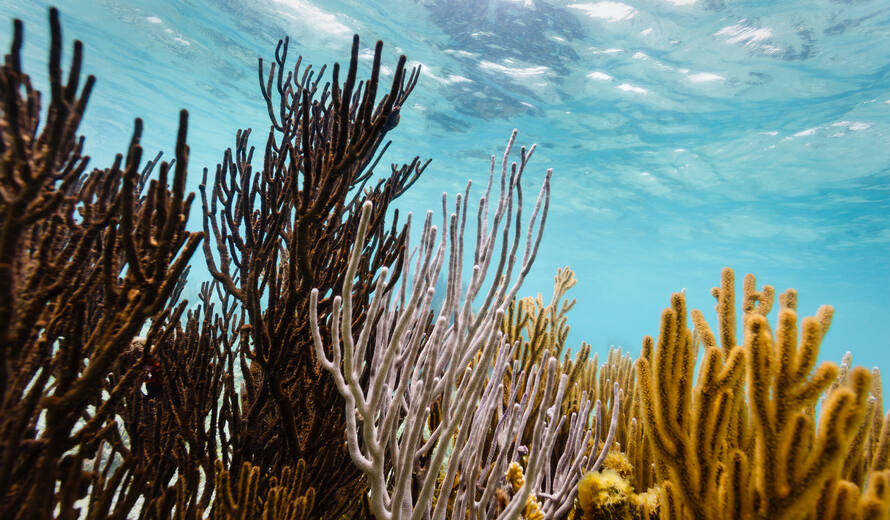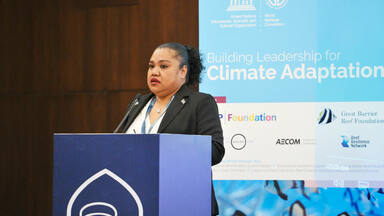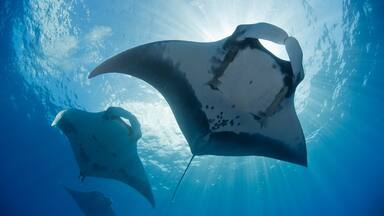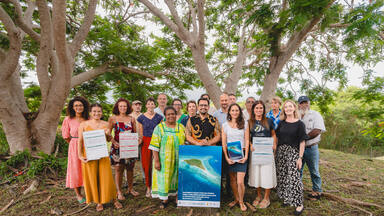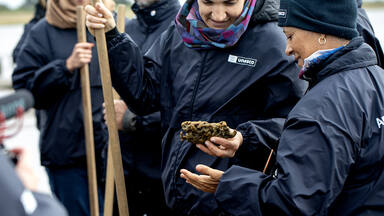How Belize is pioneering climate resilience in world’s second largest reef
Today, Belize’s Ministry of Blue Economy and Civil Aviation launched the Strategy for Reef Resilience in Belize, paving the way for concerted action across government, businesses and civil society to help safeguard the future of the UNESCO World Heritage-listed Belize Barrier Reef Reserve System from the impacts of climate change. The strategy was released alongside initial seed funding to start implementation of priority actions, each addressing an important challenge that will strengthen the resilience of this globally iconic coral reef ecosystem.
The pioneering Resilience Strategy was developed over two years in close consultation with local community members and stakeholders, scientists, managers, and government agencies, in the context of the Resilient Reefs Initiative. The Strategy is underpinned by existing science about the health and challenges facing Belize’s reef ecosystem, the resilience of communities’ livelihoods, and the current governance arrangements that are in place to protect the World Heritage-listed coral reef.
In concert with the strategy’s launch, initial seed funding is being provided to address three key challenges that the ecosystem and its communities are facing as a result of climate change. The project responds to the reef’s long-term threats by enabling protection of key blue carbon ecosystems and improving the wellbeing of Belize’s small-scale fisheries communities through the creation of viable, sustainable, and resilient alternative livelihoods. Each project builds on existing work by local partners and are community-driven. The initiative also finances a Chief Resilience Officer for four years who sits within the Belize government and who is tasked with coordinating the on-the-ground work.
In April 2022, UNESCO launched a partnership with the UN-led private/public Global Fund for Coral Reefs to step up investment for climate resilience strategies across World Heritage-listed reefs in developing countries, building on the successes of Resilient Reefs.
Initiated by the Great Barrier Reef Foundation, Resilient Reefs is a six-year AUD$14 million (approximately USD$9.5 million at the time of writing) collaboration with UNESCO, The Nature Conservancy’s Reef Resilience Network, Columbia University’s Center for Resilient Cities and Landscapes, Resilient Cities Catalyst, and AECOM. The program is funded by the BHP Foundation. The world’s first resilience strategy for a UNESCO World Heritage marine site was launched last month for Australia’s Ningaloo Coast and strategies in Palau’s Rock Islands Southern Lagoon and France’s Lagoons of New Caledonia are expected later this year.
Read more about the Strategy for Reef Resilience in Belize here.
